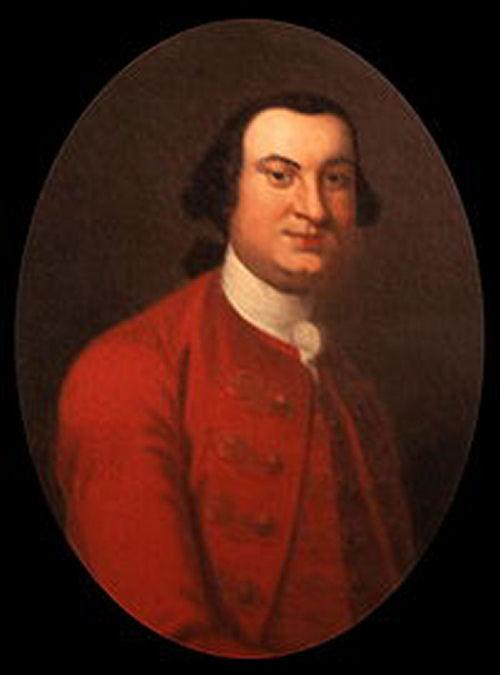
Colonel Henry Bouquet
The Forbes Expedition of 1758, more than anything else, brought civilization into the frontier of the Pennsylvania Colony in the 1700s. Granted, there were a few 'Indian' traders in the region prior to the Forbes Expedition: John Ray being the most notable, but James Dunning and Garrett Pendergrass also maintained trading posts here. The Forbes Expedition, though, forced the construction of the fortified supply depot that would be named Fort Bedford. And it would be around Fort Bedford that a village would grow, later to become Bedford Borough, the county seat. Although the Indian traders had been in the region for a number of years prior to the Forbes Expedition, that first village was what motivated taverns, grist mills, sawmills and all the other vestiges of civilization to come to inhabit this frontier region.
General John Forbes did not set foot in this region until the road that bore his name was nearly totally completed from Carlisle to the Forks of the Ohio (i.e. present-day Pittsburgh).
The Forbes Expedition, though named for John Forbes, was effectively led by the Swiss-born British Colonel Henry Bouquet. Bouquet coordinated two groups of British soldiers. One group was militaristic and functioned much like any other British army unit. The other group were road-cutters. The road-cutters literally cut a road through the forests, across rivers and through the many marshes that dotted the land. Cutting a road meant that all of the larger trees and smaller saplings and all of the bushes and underbrush had to be cut down, their stumps pulled out, and the ground leveled off in a thirty-five feet swath. Along the way, any large boulders or rocks had to be removed that would impede the easy travel of an army of men marching nine or ten shoulder to shoulder. When the road needed to cross a river, a bridge had to be built, if the water was too deep for the waterway to be forded. And where there was marshy ground, logs had to be cut and laid flat side by side in what was known as a plank road. While managing the defensive functions, and keeping the road-cutters pushing ever westward, Colonel Bouquet had to concern himself with any legal disputes that arose among the soldiers and between the soldiers and the suttlers, the civilian crafts and tradespeople who traveled with the army and supplied the soldiers with items that the British Army did not supply.
Colonel Henry Bouquet, the first British officer to (officially) set foot in the region that would become Bedford County, was the perfect man to manage General Forbes' Expedition. And because of his leadership in this campaign, when Pontiac's Rebellion flared in 1763, it was Colonel Henry Bouquet who was commissioned to lead an expedition to quell it.





